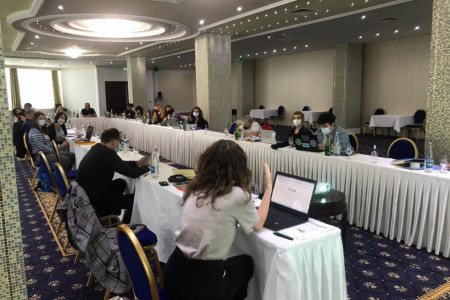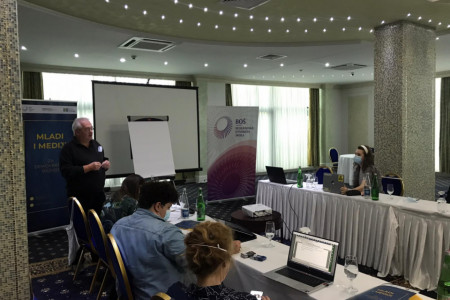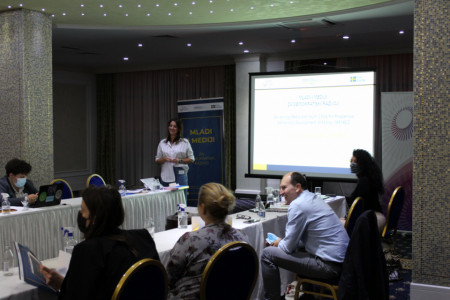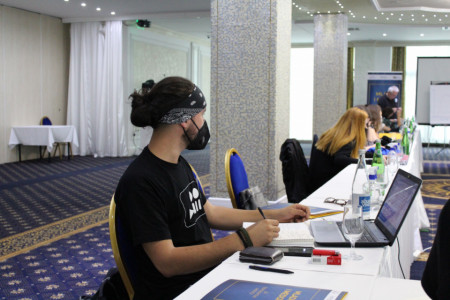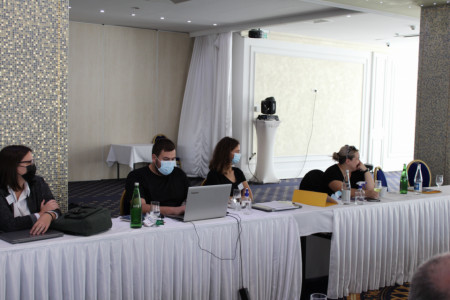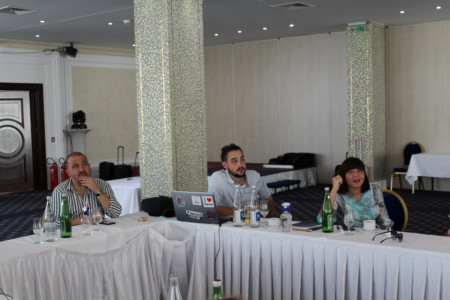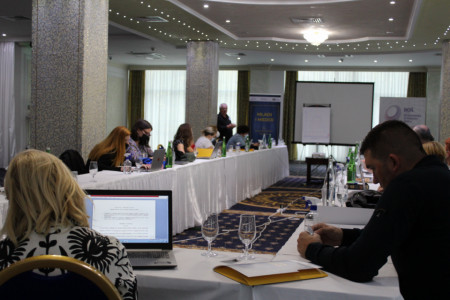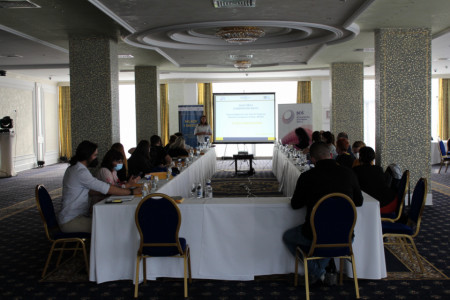Active youth and independent media are indispensable cornerstones of a society in which the democratic values of the rule of law and human rights are being implemented.
Who are the young people of the 21st century in Serbia and what do they want? Do they trust institutions, engage and actively participate in the decision-making process? Do they tend to address social and political issues in their local communities? How can we, as members of the civil sector, empower and include them so that they can become change-makers on the democratic path of Serbia?
Today, young people in Serbia are "almost endangered minority" due to the continuous and long-term brain drain and decreasing birth rate. One city of Kikinda (almost 80,000 primarily young people) leaves country on the annual basis in search for more dignified and better life. This trend is not surprising given the fact that 119 local self-government units (out of 145) have not adopted an action plan for young people, resulting in demotivation and disbelief of young people that they can influence decisions regarding relevant social and political topics, or that their opinion is heard and valued. Young people in Serbia do not trust politicians, institutions nor the media, and as different research indicates, half of them plan to leave the country in the near future.
However, although research points out what young people, to some extent, want, this social group is extremely heterogeneous and it is really not easy to answer this question. We cannot talk about the "average young person" in Serbia today nor its "average" needs. That is why it is very important to know which young people are we referring to, which message they receive, and finally - where can we find them.
Almost all research suggests that young people can be found on the Internet, and if we want to address young people, it is necessary to actively approach and look again for digital places where they gather. The fact that almost all young people (98%) are informed through their mobile devices shows the importance of adapting the content to mobile interface. Moreover, the fact that young people do not inform themselves through traditional informing channels emphasizes the need for innovative ways of reporting, especially using current resources - such as influencers, vloggers and bloggers.
And what is the situation regarding the media in Serbia today?
Free and independent media is one of the main headstones for the development of a stable democracy. Media freedom and freedom of expression include the freedom to seek, receive and share information and ideas via any kind of media without boundaries. This way media plays an unavoidable role in helping different stakeholders address the problems and use the developmental potentials of every community.
Furthermore, according to the latest Freedom House 2020 Report, Serbia is assessed as partially free with hybrid regime because of declining standards in governance, justice, elections and media freedom. Free and independent reporting is seriously threatened, as well as the safety of journalists who try to implement it.
On the other hand, media outlets seeking to improve the deteriorating media reporting standards face plenty of obstacles along the way. First of all, they lack access to innovative fact-checking tools, as well as the ways of implementing evidence-based investigative journalism, which could prevent fake news and improve media information literacy. All of these problems are becoming more visible when it comes to young journalists who start their careers in such conditions, especially if they work in smaller local communities. Speaking of the young people, it is worth mentioning that the sensitivity of the young audience and the new ways of approach that they require, mostly remain neglected issues for both traditional and online media in Serbia. One of the key roles of both civil society organizations for youth and their media counterparts nowadays is to inform young generations of the importance of democratic principles in the ways susceptible to them. Without a positive attitude of the media towards youth, as well as youth towards democracy, there is no starting point of democratic progress neither on local nor the national level.
About these and many other issues we had the opportunity to discuss and offer some answers and solutions at the initial training for partner organizations within the first project cycle of the Programme " Media and Youth for Democratic Development". The training was organized by BOS with the support of the Kingdom of Sweden. During this three-day training, almost 20 representatives of selected partner organizations were introduced to the future plans of the project implementation. Moreover, they presented their projects that are to be implemented in the following months and hopefully will contribute to empowering youth, as well as to free and independent media reporting on relevant topics.
The training was organized by Belgrade Open School with the support of the Kingdom of Sweden as part of the Programme "Media and Youth for Democratic Development". It was held in Sabac from September 29 to October 1, 2021, and it gathered representatives of partner organizations.

